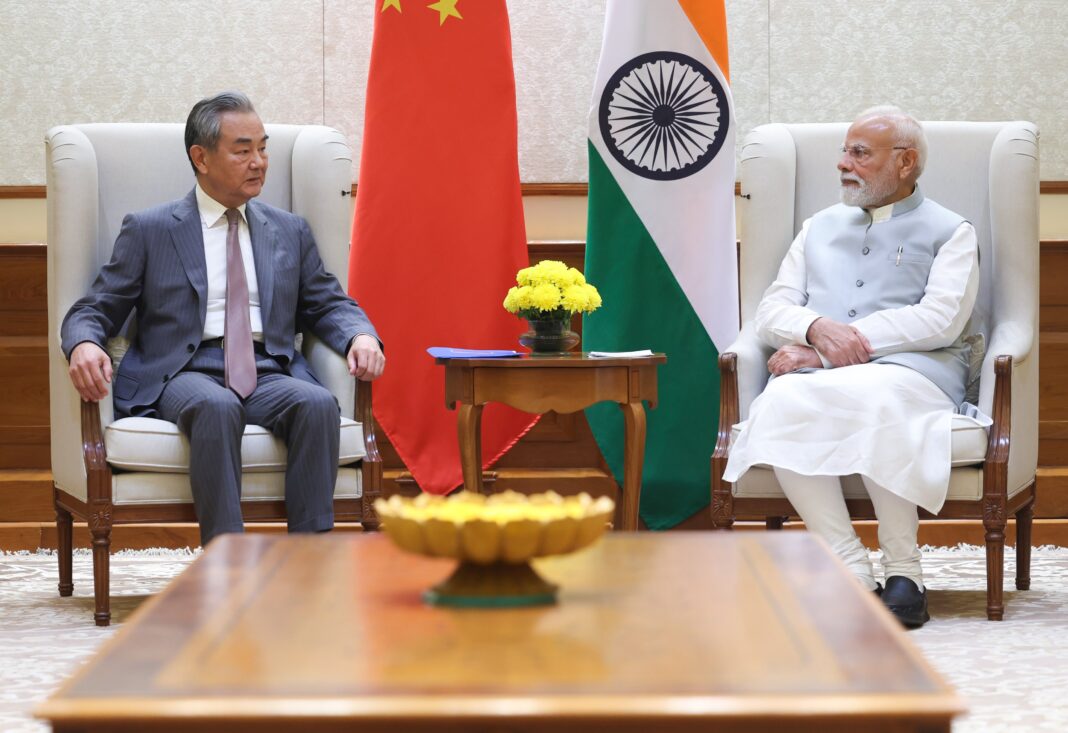India and China will back each other in hosting BRICS summits over the next two years, with India taking 2026 and China 2027, following Chinese Foreign Minister Wang Yi’s visit to New Delhi. The agreement comes as both sides seek steadier ties and practical cooperation after recent diplomatic advances, according to a summary from the Chinese Ministry of Foreign Affairs.
The commitment emerged from bilateral talks on August 18, 2025, between Wang and External Affairs Minister S. Jaishankar. Officials discussed steps to deepen engagement across diplomacy, travel, trade and people-to-people exchanges.
Beijing also welcomed Prime Minister Narendra Modi’s attendance at the Shanghai Cooperation Organization summit in Tianjin during China’s presidency. New Delhi reaffirmed support for the SCO chairmanship and said it expects a successful summit outcome.
Prime Minister Modi called the outcome a positive step for stability and growth in Asia and beyond, noting steady progress in ties since his meeting with President Xi Jinping last year in Kazan.
According to summaries of the talks, the two governments will work to restore direct flight connections and update their Air Services Agreement. Visa processes are set to be simplified for tourists, businesspeople, media and other travelers in both directions. The sides also agreed to expand the scale of Indian pilgrimages to Mount Kailash and Lake Manasarovar in 2026, in the Tibet Autonomous Region of China.
Trade and investment facilitation featured prominently. While specific measures were not immediately detailed, officials said they would take concrete steps to boost commercial flows and revive official dialogue mechanisms, including a high-level people-to-people exchange forum in 2026.
On the boundary question, both ministers agreed to maintain peace and tranquility through continued consultations—an approach shaped by the need to manage differences after tensions that followed the 2020 skirmishes.
The diplomatic calendar will also spotlight 2025, when India and China mark the 75th anniversary of diplomatic relations with commemorative events. Both sides said these observances will underscore continuity in engagement alongside new areas of cooperation.
China’s foreign ministry framed the discussions as forward-looking and guided by leadership-level direction, describing strategic guidance as central to the trajectory of ties.
Wang and Jaishankar also discussed broader coordination in multilateral forums, reaffirming support for a rules-based trading system with the WTO at its core and a multipolar world that reflects the interests of developing countries.
The reciprocal backing for BRICS summit hosting signals a practical turn toward cooperation between Asia’s two largest nations. With Modi expected at the SCO summit in Tianjin, attention now shifts to whether promised steps—flights, visas, trade facilitation and revived dialogues—translate into tangible, sustained momentum.
A global media for the latest news, entertainment, music fashion, and more.














